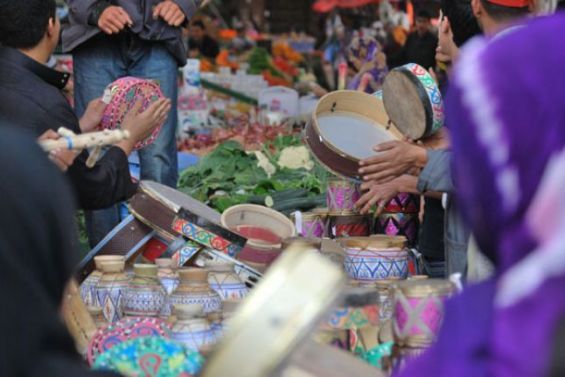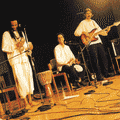Ashura, which is celebrated every year on the 10th of Muharram, is regarded in several Middle Eastern countries, especially where Shiite sects are present, as a sad day. Unlike Sunnis, the day is an opportunity for Shiites to mourn and cry over the death of their master Hussein Bin Ali. For Moroccans, the holy day is both an event of joy and sorrow.
Shiite Muslims mourn on the 10th of Muharram every year the death of the Prophet’s grandson. However, in Morocco, commemorating Al Hussein’s death is limited to some songs while the rest of the day is dedicated to joyful celebrations.
With shops selling dried fruits, dates and sweets, every family tends to prepare for the holiday shopping beforehand. These goodies are served during the period of Ashura to visitors, family members, neighbors and especially children.
Ashura is also a joyful holiday for kids as parents give their children gifts and toys. These presents are most of the time water pistols and Moroccan musical instruments like «Bendir», a frame drum played with the fingers and «Taarija», a smaller version of the darbouka, also called the doumbek, a single-head drum. On the night of the 10th of Muharram, Moroccans set fire and gather around it in a very special ritual, singing special songs and playing with their recently purchased musical instruments above-mentioned.
Shiites have nothing to do with how Moroccans celebrate Ashura
Commenting on how Moroccan celebrate Ashura, Mustapha Benhamza, chairman of the Ulemas’s council in Oujda and member of the Higher Council of Ulemas, told Yabiladi that «celebrating Ashura and the new Hijri year started way before the emergence of Shia Islam and what happened between Ali Ibn Abi Talib and Maawiya».
Benhamza added that when the Prophet entered the city of al-Madīnah al-Munawwarah, he found out that Jews were fasting on the day of Ashura. He asked about that and they told him that «the fasting is to commemorate the day when Moses and his followers were saved from Pharaoh by Allah by creating a path in the Red Sea. So he fasted on the day and told the people to fast».
«Shiites are not interested in Moses, but what pushes them to celebrate Ashura is the murder of Hussein», he said referring to the death of Hussein ibn Ali at the battle of Karbala on the 10th of Muharram of the year 61 AH.
«The Moroccans are influenced by some events, but they are not necessarily related to Shia, because there have been precedents of Islam in Morocco,» Benhamza said. «Perhaps these events are recalled on this day and restored on such occasions ... but we can’t say that the Shiites are the ones who did this, because this is a statement that is unfounded.»
Celebrating Ashura in Morocco is a Shiite tradition
«To say that Ashura is a Shia practice necessarily means that there is a local historical bond, cultural and social roots in the collective memory of Moroccans and the popular culture of symbols, proverbs, customs and traditions,» said Issam Humaidan al-Hassani, a Moroccan Muslim activist.
He added that «the royal adviser Dr. Abbas al-Jirari cited in a book entitled (Ashura for Moroccans) symbols, customs and traditions that were originally Shiite. Dr. Jirari through the different types of festivities that are organized in Ashura, the day is either sad or joyful depending on regions ... And this is linked to Islamic tribes that resided in Morocco starting from the Fatimid and Idrisid dynasty to Bani Hammoud in Andalusia.»
He also confirmed that «there are manuscripts in Morocco published in the last decade that prove that Moroccans celebrated Ashura while mourning and that the term of Husseiniya existed only within the framework of the Idrisid dynasty».
He added that «in southern Morocco, people do not cook and wear black on the 10th of Muharram. Some of them also pour water to commemorate the fact that Hussein was killed while thirsty. So talking about Ashura marks a painful incident which Moroccans imitated in various forms and expressions. It is an essential part of our culture», he concluded.





 chargement...
chargement...













